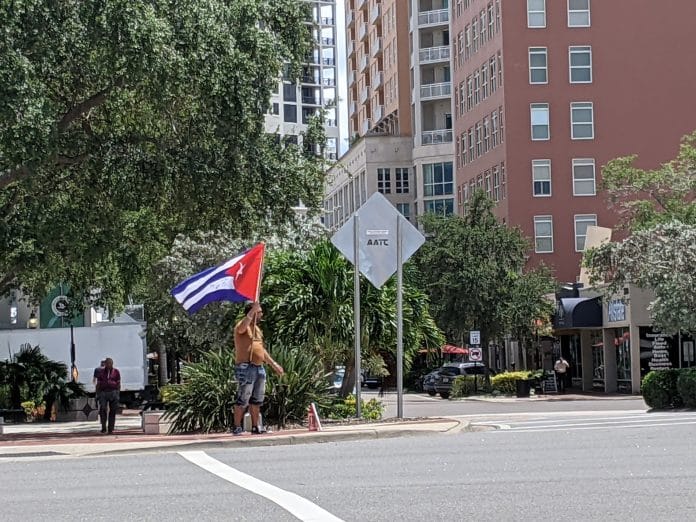by PAT RAIA
The US Senate has amended its budget resolution to include an amendment that requires the Biden Administration to facilitate free, uncensored access to the internet for the people of Cuba. Senators Marco Rubio (R-FL) and Rick Scott (R-FL) offered the amendment.
In July, demonstrators in Cuba took to the streets in Havana and elsewhere on the island to protest economic hardships and abuse under the communist regime. Floridians throughout the state rallied in support of the Cuban protesters.
In response, the Cuban government shut down cell phone service and internet access across the island. At the time, Rubio and Gov. Ron DeSantis called on the Biden administration to get Cubans back online.
On Aug 10 the Rubio amendment was attached to the proposed Senate Budget Resolution.
Specifically, Amendment 3097 creates a Deficit Neutral Reserve Fund (DNRF) within the reconciliation bill to be used to build up and deploy existing technology on the island.
DNRFs are amendments offered as a way to discuss budget-irrelevant topics without violating budget reconciliation rules.
According to Rubio Spokesman Dan Holler, telecommunications technologies allow US-based firms to be deployed to remote regions at short notice and without permission from or contact with the Cuban government.
“American technical capacity, coupled with the physical proximity of Cuba to the United States and its interests, make providing unrestricted access to the island an attainable and morally imperative goal,” Rubio wrote in a July letter to Biden.
Rubio also asked Biden to “shore up democracy” via programming through the Office of Cuba Broadcasting.
The Senate Budget Resolution sets the congressional budget for the US Government for fiscal year 2022 and sets the appropriate budgetary levels for fiscal years 2023 through 2031.
On Aug. 11, the Senate agreed to the resolution containing the Rubio amendment by a 50-49 vote.

